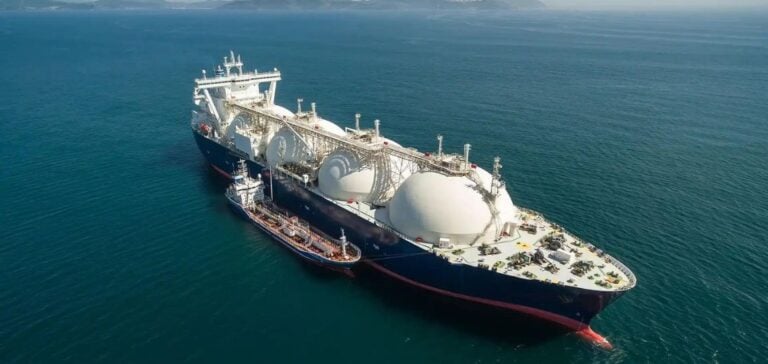In July, exports of liquefied natural gas (LNG) from the USA are being massively redirected to the Asia-Pacific region.
An analysis by S&P Global Commodity Insights shows that China and South Korea become the main destinations, each receiving 11 US cargoes.
This shift is due to rising temperatures in Southeast Asia, boosting demand for LNG for power generation.
As a result, deliveries to Europe, including Turkey, fell to 34 cargoes, less than a third of July’s US volumes.
This marks the third consecutive month that Europe has received less than half of US LNG exports.
Asian demand, particularly in China and South Korea, is booming, leading to a rebalancing of global LNG flows.
Impact of weather and logistics conditions
India is among the main destinations, due to higher-than-expected temperatures, boosting energy demand.
A total of 117 U.S. LNG cargoes were delivered in July, compared with 104 in June, reflecting an increase in shipments to the Asia-Pacific region.
However, LNG cargoes declined in July, from 110 in June to 98.
This was partly due to the temporary closure of the Freeport LNG export plant on July 7, ahead of Hurricane Beryl’s landfall on the Texas coast.
The hurricane caused power cuts and infrastructure damage, interrupting gas deliveries for over a week.
By the end of the month, the plant is back up and running at almost full capacity.
Global LNG Market: Prospects and Challenges
Global LNG market fundamentals remain bearish in August, despite high storage levels in Europe and moderate buying interest in South Asia and China.
Atlantic LNG prices are rising due to maintenance concerns in Norway, tensions in the Middle East and supply disruptions in Australia.
Platts, a division of S&P Global Commodity Insights, values the JKM benchmark price for LNG cargoes delivered in Northeast Asia at $12.915/MMBtu on August 2, up 0.5% on the previous day.
In Europe, the DES Northwest Europe marker for September was $11.60/MMBtu, up 12.5 cents.
On the other side of the Atlantic, the Gulf Coast marker for U.S. cargoes FOB loaded 30 to 60 days ahead is $10.82/MMBtu, up 12 cents on August 1.
The evolution of LNG flows demonstrates the changing dynamics of the global energy market, where weather conditions and logistical constraints play a crucial role.
As Asia-Pacific accounts for a growing share of global demand, US exporters must adapt to maximize their opportunities on international markets.






















